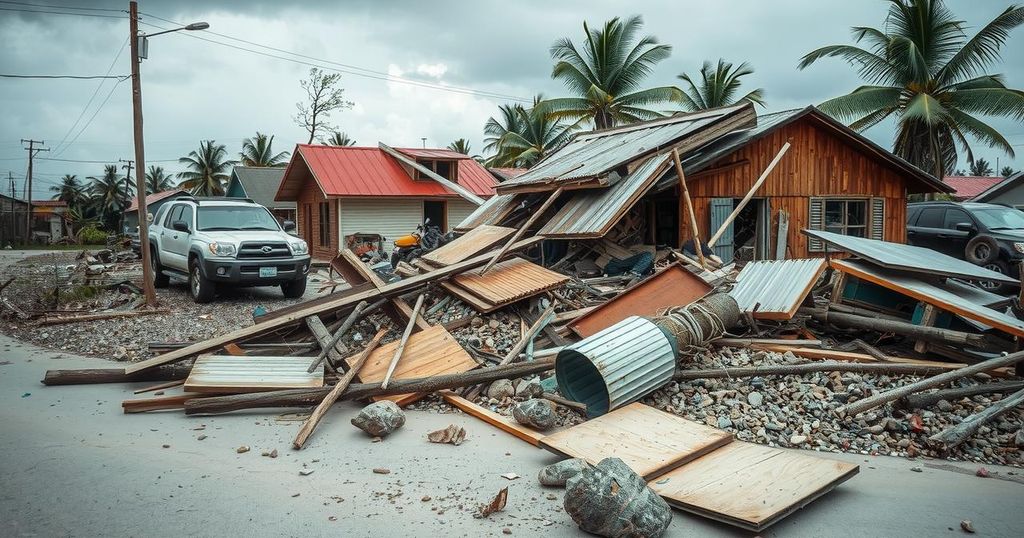World news
ALEPPO, ASIA, BARACK OBAMA, BASHA, BEIRUT, BENJAMIN NETANYAHU, CIVILIAN CASUALTIES, CONFLICT, EUROPE/ASIA, FOX NEWS DIGITAL, HAYʼAT TAHRIR AL, HEZBOLLAH, IRAN, ISLAMIC REPUBLIC OF IRAN, ISRAEL, JERUSALEM, LEBANON, MIDDLE EAST, MIDEAST, REPUBLIC OF IRAN, RUSSIA, SANCTIONS, SYRIA, SYRIAN ARAB REPUBLIC, U. S, U. S - DESIGNATED TERRORIST MOVEMENT, US, WAR
Maya Ramirez
0 Comments
Islamist Rebel Forces Capture Aleppo: A New Challenge for U.S. Policies in Syria
Islamist rebel forces have captured vast areas of Aleppo, presenting new challenges for U.S. policy in Syria. The seizure of key sites, including those related to chemical weapons, poses risks to regional security. Jason Brodsky and other experts warn that these developments could endanger American and Israeli interests, especially as the U.S. maintains a military presence to combat ISIS while managing the influence of Iranian-backed forces.
In a significant escalation, extremist Islamist groups in Syria have captured extensive territories in Aleppo, raising critical concerns for U.S. policy in the region. Notably, the fall of much of Aleppo, a city of two million residents, represents a major military setback for President Bashar Assad and allied forces, including Hezbollah, Iran, and Russia. Such developments pose serious implications for U.S. interests and Israeli security, particularly with reports indicating that these groups may have gained access to sensitive military sites, including facilities related to Assad’s chemical weapons program.
Jason Brodsky, the policy director for United Against Nuclear Iran, highlighted the potential threat posed by Hayʼat Tahrir al-Sham (HTS), a group linked to Al-Qaeda, stating that their control over strategic locations could endanger both American and Israeli security. This precarious situation was underscored by Israel’s recent strategic actions against Hezbollah and Iranian forces, which may have emboldened these Islamist factions. Former President Barack Obama’s controversial 2013 agreement regarding the disarmament of Syria’s chemical weapons is also under scrutiny, given the ongoing allegations of chemical weapon use by the Assad regime.
Moreover, about 900 U.S. troops remain in Syria primarily to combat the Islamic State, and their presence aims to deter Iranian influence in the region. Experts express concern that the rise of Islamist factions, particularly HTS, complicates the U.S. military standing, especially since this entity is designated as a foreign terrorist organization by the U.S. government. Reports of increased Russian airstrikes in Aleppo and the displacement of Kurdish forces further complicate the regional dynamics, threatening existing alliances and military efforts to combat ISIS.
Amid this turmoil, the Syrian regime announced a redeployment of its armed forces to bolster defenses in response to the escalating situation, yet their military has sustained significant casualties, reflecting the intense conflict surrounding Aleppo. As the situation continues to develop, the implications for regional stability and U.S. foreign policy remain profound.
The geopolitical landscape in Syria has been marked by prolonged conflict, severe humanitarian crises, and shifting alliances. Since the uprising against Assad began in 2011, the regime has faced numerous challenges, including ongoing rebel offensives and international condemnation for its brutal tactics. The emergence of extremist groups within the Syrian opposition, particularly those with links to Al-Qaeda, presents a significant security dilemma for both the United States and regional allies. The recent capture of Aleppo, a vital urban center, signifies serious operational losses for the Assad regime and potentates the threats posed by these Islamist factions, complicating America’s strategic interests in the region.
The capture of Aleppo by Islamist rebel forces represents a significant set back for the Assad regime and an emerging challenge for U.S. foreign policy. This development raises critical concerns regarding security in the region, especially in relation to the proliferation of extremist groups and their potential access to sensitive military assets. As the U.S. navigates this complex landscape with ongoing military involvement, any miscalculations could have lasting ramifications on both local and international levels, demanding a reassessment of strategies moving forward.
Original Source: www.foxnews.com




Post Comment